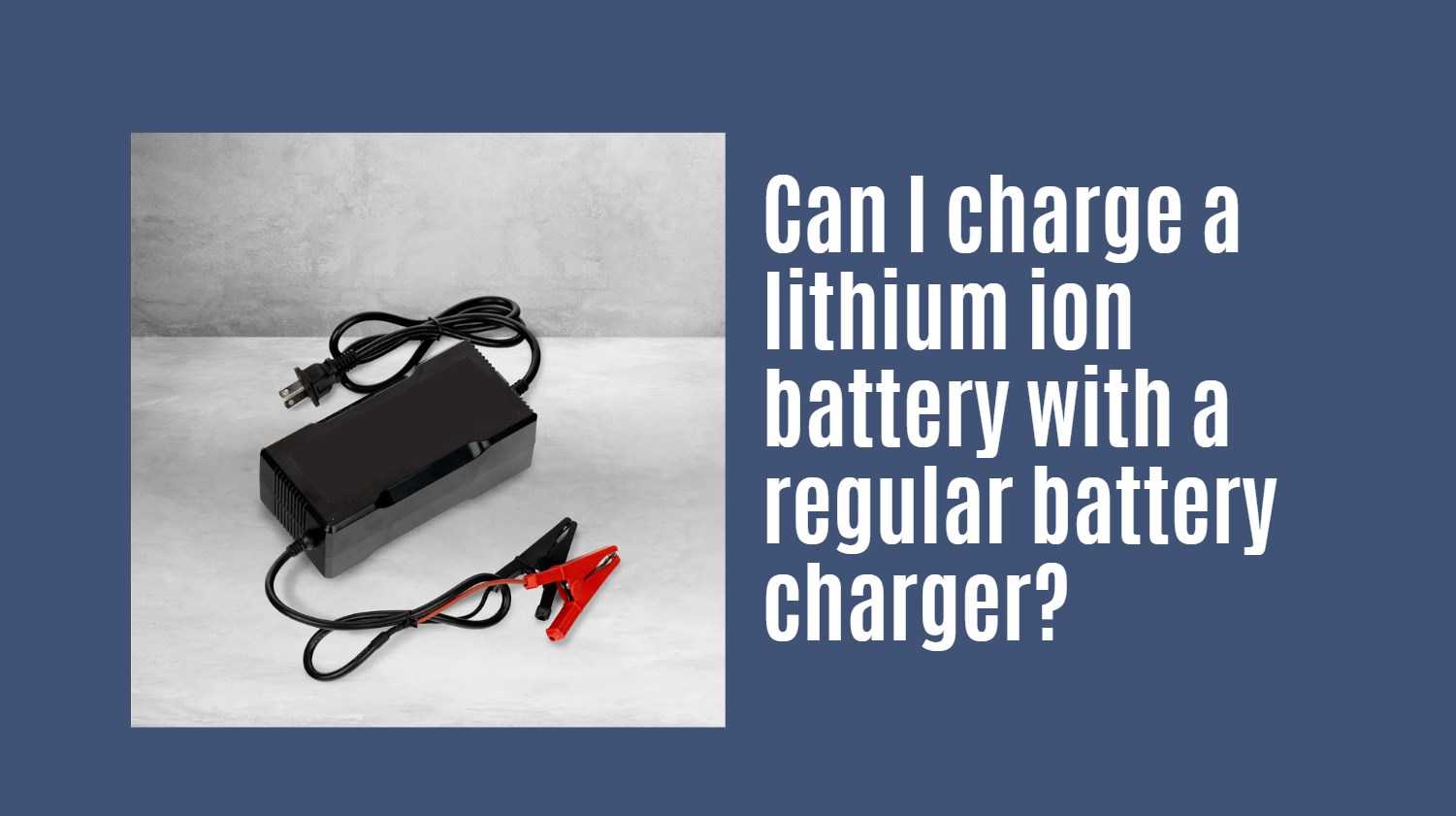Charging a lithium-ion battery with a regular battery charger, particularly one designed for lead-acid batteries, is generally not recommended. The charging requirements for lithium-ion batteries differ significantly from those of lead-acid batteries, and using an incompatible charger can lead to damage, safety hazards, and reduced battery lifespan.
Key Differences Between Lithium-Ion and Lead-Acid Chargers
- Charging Profiles:
- Lead-Acid Chargers: Typically operate using a three-stage process—bulk, absorption, and float charging. These stages are designed to manage the specific needs of lead-acid batteries.
- Lithium-Ion Chargers: Use a two-stage process—constant current and constant voltage. Lithium batteries do not require float charging and have a narrower voltage range for safe operation.
- Voltage Requirements:
- Lead-acid chargers usually output voltages between 13.8V to 14.7V, which may be too high for lithium-ion batteries. For example, most lithium-ion batteries require a maximum charge voltage of around 14.6V. Exceeding this voltage can cause overcharging, leading to thermal runaway or battery failure.
- Safety Features:
- Many lead-acid chargers include features like desulfation modes that pulse high voltages into the battery to maintain its health. These features are not suitable for lithium-ion batteries and can cause irreversible damage.
When Is It Possible to Use a Regular Charger?
In some cases, it may be possible to use a lead-acid charger on a lithium battery if:
- The charger allows for precise control over the maximum voltage and does not have an automatic equalization mode enabled.
- You monitor the charging process closely to disconnect the battery immediately once fully charged to prevent overvoltage conditions.
However, this practice is risky and not advisable as it can lead to inconsistent charging and potential damage.
Best Practices for Charging Lithium-Ion Batteries
- Use Dedicated Lithium Chargers: Always opt for chargers specifically designed for lithium-ion batteries. These chargers provide the correct voltage and current profiles necessary for safe and efficient charging.
- Monitor Charging Conditions: Ensure that the charging environment is well-ventilated, dry, and free from flammable materials.
- Check Battery Voltage Before Charging: Use a multimeter to verify that the battery is within the appropriate voltage range before connecting it to the charger.
- Follow Manufacturer Guidelines: Always adhere to the specifications provided by the battery manufacturer regarding charging voltage, current limits, and recommended charger types.
Latest News
- Recent advancements in smart charging technology are improving safety protocols for lithium-ion batteries.
- The demand for high-quality dedicated chargers is increasing as more users transition from lead-acid to lithium-ion battery systems.
- Research continues into developing universal chargers that can safely accommodate multiple battery chemistries without compromising safety or performance.
Redway Expert Comment
“Charging lithium-ion batteries with regular chargers poses significant risks due to differences in charging requirements and safety features. At Redway Battery, we emphasize using dedicated chargers designed specifically for lithium technology to ensure optimal performance and safety. Proper charging practices are essential for maximizing battery lifespan and reliability.”




